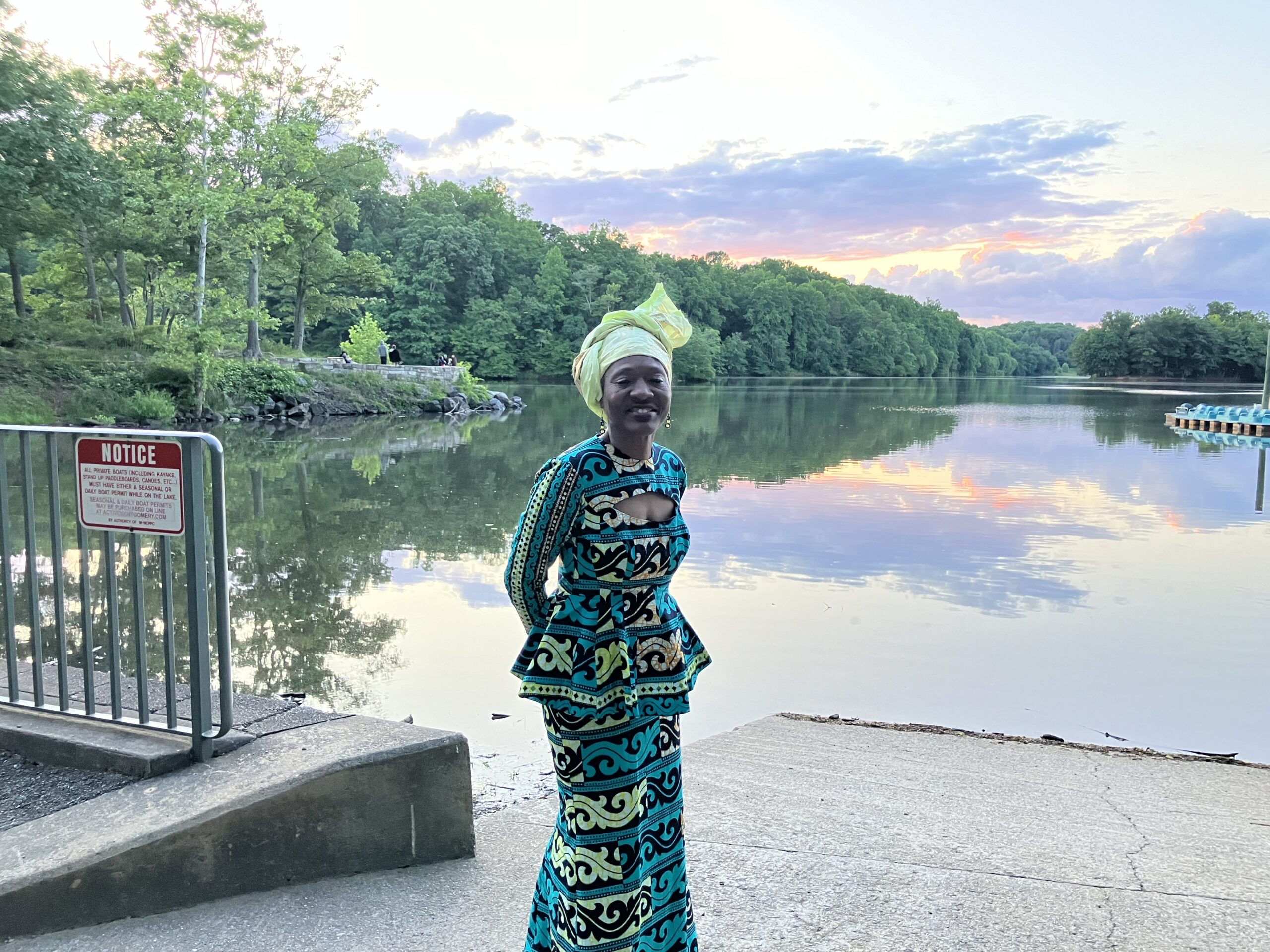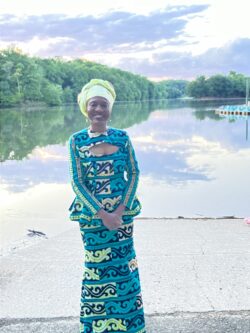
CHOW Chat: Emira Woods on Lifting Up Diverse Leaders
 The Capitol Hill Ocean Week 2024 program calls upon leaders from all walks of life to come together to drive attention and innovation to protect our ocean and center people at the core of ocean solutions. Together, we will explore international, national, and local communities and the traditional and new ways they are adapting to a changing climate, saving and protecting species, and sustaining their relationships with the ocean for a brighter, sustainable, and equitable future. Emira Woods is a member of the 2024 CHOW Advisory Committee and Executive Director of the Green Leadership Trust. We spoke with Emira about her role on the Advisory Committee, her hopes for this year’s conference, and centering justice and supporting the greater inclusion and impactful leadership of people of color. Register today at CapitolHillOceanWeek.org!
The Capitol Hill Ocean Week 2024 program calls upon leaders from all walks of life to come together to drive attention and innovation to protect our ocean and center people at the core of ocean solutions. Together, we will explore international, national, and local communities and the traditional and new ways they are adapting to a changing climate, saving and protecting species, and sustaining their relationships with the ocean for a brighter, sustainable, and equitable future. Emira Woods is a member of the 2024 CHOW Advisory Committee and Executive Director of the Green Leadership Trust. We spoke with Emira about her role on the Advisory Committee, her hopes for this year’s conference, and centering justice and supporting the greater inclusion and impactful leadership of people of color. Register today at CapitolHillOceanWeek.org!
What are you most looking forward to during Capitol Hill Ocean Week 2024?
I am excited to attend my first Capitol Hill Ocean Week at this pivotal time to raise a collective call to action to stem the tide of climate change, elevate the climate solutions of Black, Brown, and Indigenous communities, and boldly protect the planet and its people.
Climate scientists warn that April 2024 was the hottest month on record for the world’s oceans. In fact, over the past year, every single day there have been new records set for the warming of oceans around the world. The impacts have been devastating to marine life, shoreline vegetation, and communities as warming oceans radiate heat throughout the planet. There couldn’t be a better time to convene as people of conscience to take bold collective action.
How have you hoped to shape this year’s Capitol Hill Ocean Week through your role on the Advisory Committee?
CHOW 2024 will be a space that embraces Environmentalists of Color, across sectors. I am excited for a spotlight on Leadership at its most vital level – that elevates the lived experiences of young leaders and environmentalists from frontline communities. I am also excited to see art and activism infusing the main stage and other spaces of CHOW.
The theme of this year’s conference is Leadership. What is one thing you want to share (or that you wish more people knew) about what it means to be a leader?
Leaders stand as a bridge, building on the values and traditions of ancestors while also daring to “invent the future” generations yet unborn demand. True leadership is rooted in community, reflecting the South African ethos of Ubuntu – I am because YOU are, YOU are because I am. Our planetary family exists in an interdependent ecosystem woven together by ordinary people propelled by circumstance and history to lead in extraordinary ways. Leaders bring courage, boldness, radical thinking and action to help build a more just and livable world.
Who is one leader who inspires you?
It is hard to choose one leader who inspires me. At this particular moment, I will include the community of young leaders championing a more just future on campuses across the world. From Palestine to the Democratic Republic of Congo to the U.S. Gulf States, our collective liberation as a human family is bound to a vision of a better world that challenges existing systems and reimagines what’s possible for humans, other beings, and this planet we call home. These visionaries, and the movements/networks they sustain, are the true leaders.
How can we lift up and connect leaders everywhere to drive change, break down barriers, embrace responsibility and service, and build and support diverse alliances and communities?
The best path to lifting up and connecting leaders is to look to the margins and build spaces that are deeply rooted in community yet transcend place and geography.
Histories of capitalism and colonialism have long rendered invisible leaders from communities impacted by oppression and exploitation. These leaders, often marginalized, are the most creative and visionary. Expanding space for bold, visionary, radical People of the Global Majority – Black, Brown, and Indigenous peoples – to bring their lived experience to the highest levels of decision making in nonprofit, public, and corporate spaces is the task of our time.
The more we embrace justice, equity, diversity, inclusion and belonging, the more people and the planet benefit from Indigenous, intergenerational, unapologetically matriarchal, wisdom.
What are changes that the environmental movement/organizations/individuals must make to confront historic underrepresentation and support the greater inclusion and impactful leadership of people of color?
The environmental movement must center justice in its most fundamental sense. Boards of directors/governing bodies and C-Suite Leadership must reflect, respond to, resource and honor the lived experiences and climate solutions of People of the Global Majority. Those who have been most harmed are also those with the greatest ingenuity and most creative solutions; often rooted in indigenous knowledge. Black, Brown and Indigenous people are 80% of the world, women are 50%, 2 Spirit LGBTQIA+ peoples are 30%. These guideposts can help but true change comes from a shift in organizational culture upholding dignity and expanding the space for leadership rooted in frontline and fenceline communities.
